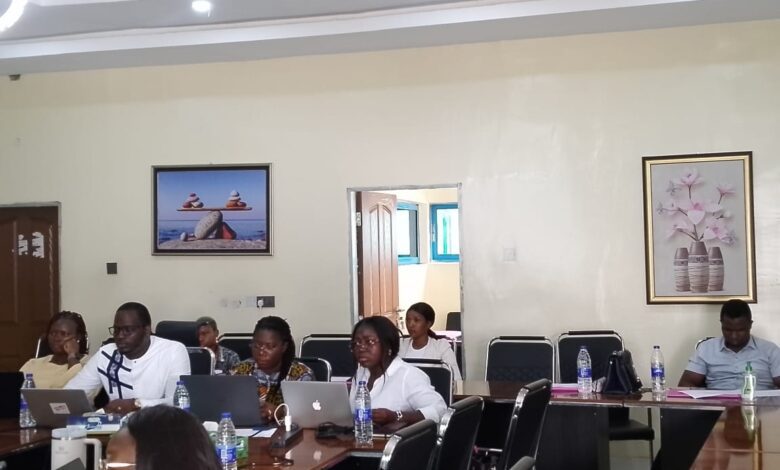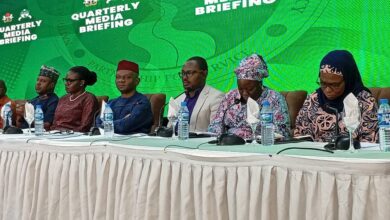
Civil Society Organisations (CSOs) have called on governments on the African continent to establish a fund to swiftly respond to health emergencies.
They made the call during a 3-day technical peer review retreat on strengthening accountability of health security finances in Nigeria, Cameroon, Sierra Leone, and Senegal organised by the Africa Health Budget Network (AHBN) in Abuja.
Programme Manager, Health Sector Reform Foundation (HERFON), Dr. Opeyemi Adeosun, said, “We want an emergency fund for health security with ease in accessibility such that if there is an outbreak, under 24 hours people who need to be there should move to prevent it from escalating.
“This year, over 4 billion naira have been budgeted to NCDC, and recently, we heard from the DG that there are financial issues in terms of releases of the money. Disbursement of the money is an issue; the fact that you allocate funding and do not disburse, in an emergency case, could be catastrophic.”
He explained that the fund should be separate from what is allocated to the Federal Ministry of Health and sister agencies because of the bottlenecks associated with disbursement.
He noted that their appeal was for the whole African government with emphasis on Nigeria because Nigerians travel to a lot of countries and are natural hosts to some of the diseases.
On his part, Coordinator of AHBN, Dr. Aminu Magashi Garba, stressed that the continent was faced with numerous disease outbreaks coupled with dwindling resources; therefore, there was a need to ensure transparency and accountability in the disbursement of the funds allocated to health:
“In Nigeria and many African countries, we are, at the moment, having multiple outbreaks of infections. And for example, in Nigeria, currently, according to the Nigeria Centre for Disease Control, there are diphtheria cases in the north; some states are having Lassa fever.
“Some are having cases of meningitis, and some are having Mpox, and not only Nigeria; all the countries we invited—Sierra Leone, Senegal, Cameroon, and many African countries are battling with one infection or the other. The African Heads of State and the Ministers of Health are also struggling with dwindling resources to address this critical issue of outbreaks of diseases,” he said.
Dr. Magashi explained that the retreat was an opportunity for CSOs to learn and use the AHBN-developed accountability framework to drive advocacy for proper utilisation of funds allocated to health in their countries:
“So we felt that even with the meagre money available in the country and with the support from the donor partners, with all sustainable finance mechanisms, the civil society and the media need to strengthen accountability so that the money allocated and released are utilised; it’s targeting the diseases; it’s targeting to strengthen governance and coordination and ensuring that the ordinary people benefit, and we are preventing the spread of infection,” the AHBN Coordinator said.
According to Dr. Magashi, the call to action for the peer review retreat was for governments to sit up and plan ahead of any epidemic or pandemic.
“When we had a concurrent infection spread in Nigeria and the government was battling to address it, it meant the government needed to do more planning, preparedness, and response.
“And the government must also be engaging with the public, providing quality information, correct and factual, so that there will not be any fake news and misinformation regarding any particular vaccination or any infection control and prevention in Nigeria and other African countries.
“We are launching the regional accountability framework for health security, and these four countries in the room—Sierra Leone, Nigeria, Senegal, and Cameroon—are going to roll out the use of scorecards at the county level to track progress, accountability for results, and accountability for resources,” he said.
Similarly, one of the participants, the Executive Director for Health Alerts, Victor Koroma, stated:
“I want to appreciate the African Budget Health Network (AHBN). I have been a partner to it now for some years now, and I think the work that all of us are doing as far as holding our authorities or the government accountable in ensuring that the finances that are disbursed or provided to them by partners and development partners are judiciously used.
“This engagement is extremely, very important for us because it gives us an opportunity to understand more details about how we engage our policymakers. For me, even what we are discussing now when we talk about the accountability framework is a scorecard that is developed and that is going to guide us back in our country, Sierra Leone, to see how we are going to engage stakeholders that are involved in health security, preparedness, pandemic preparedness, and response.”





